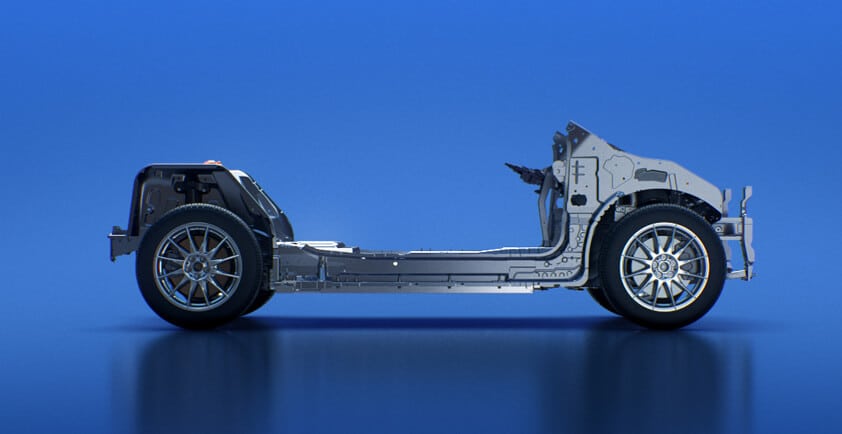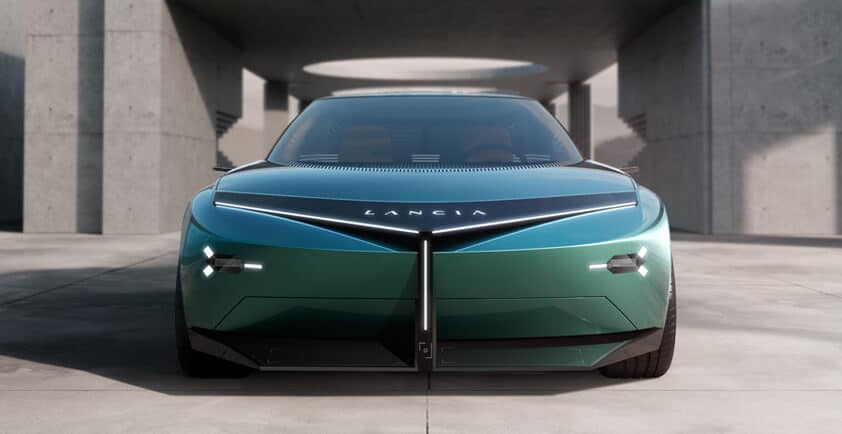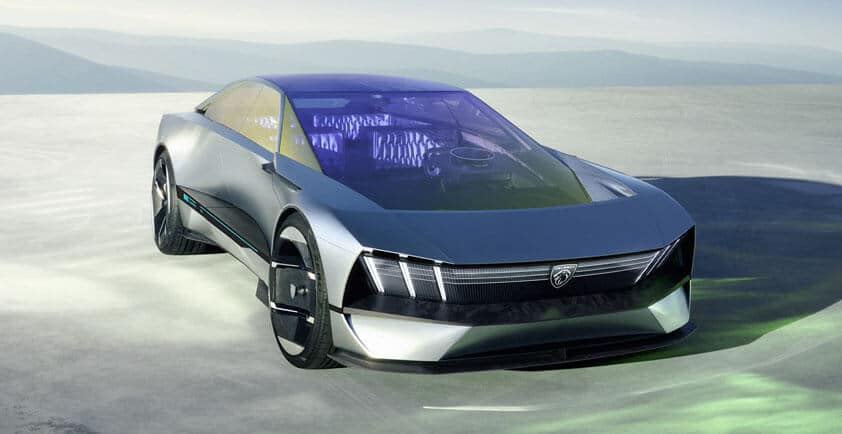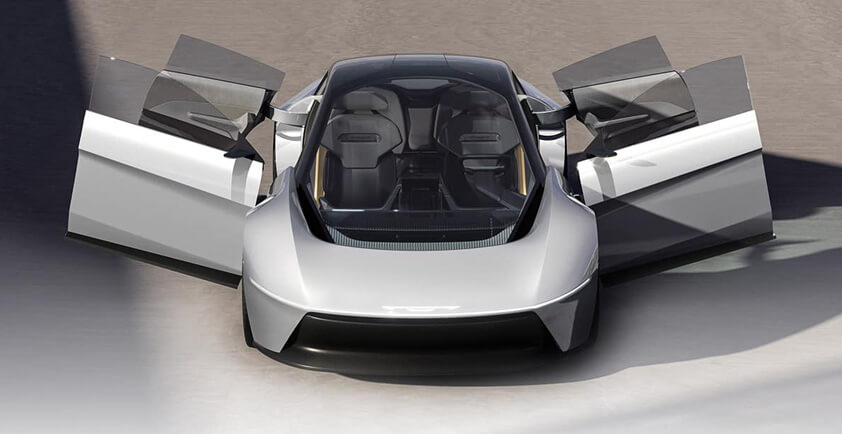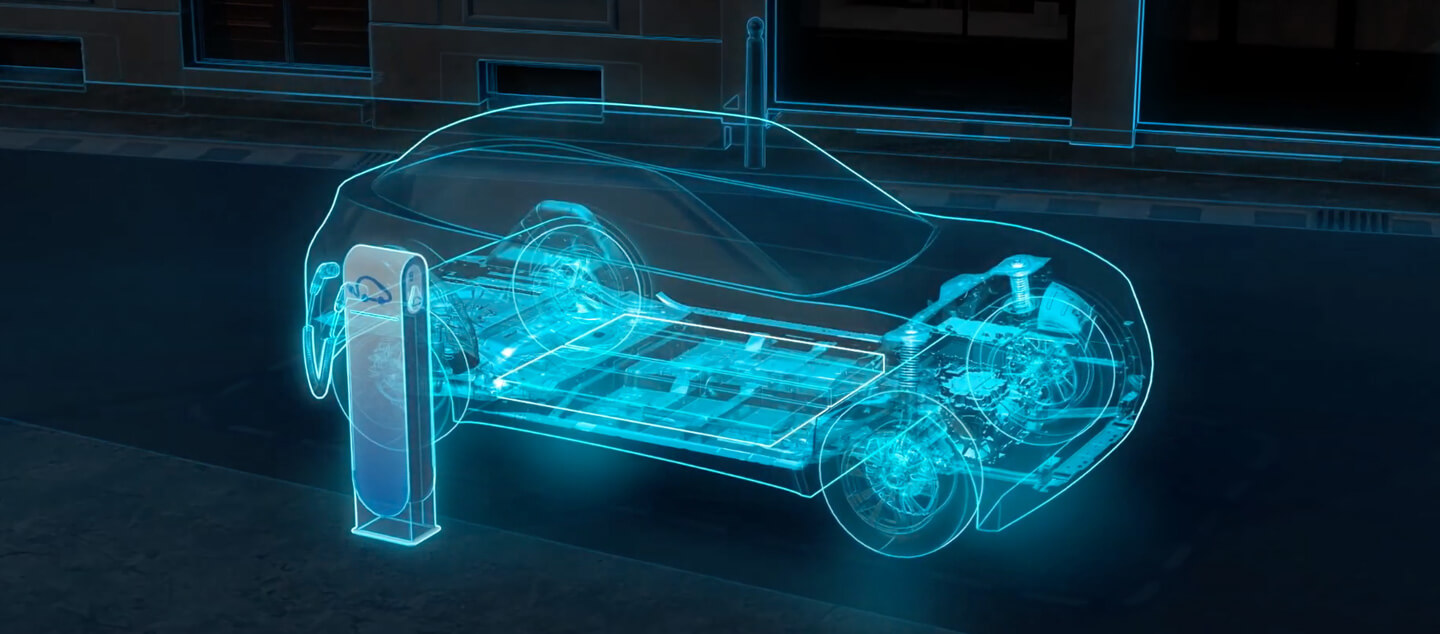
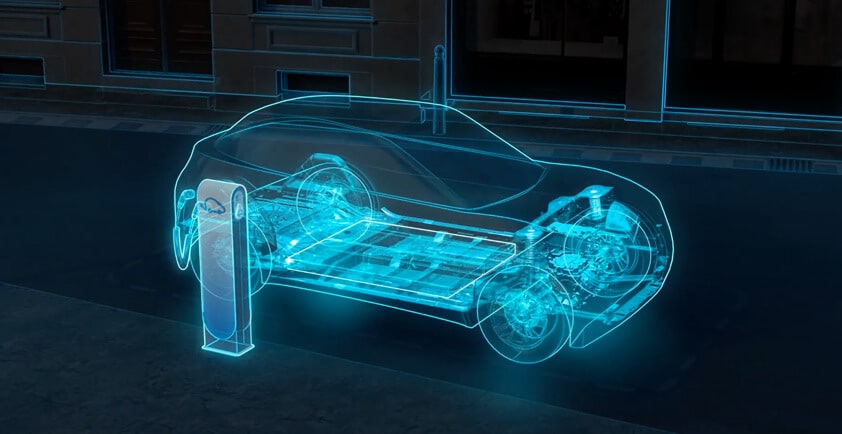
IBIS: STELLANTIS AND SAFT REVEAL A SMARTER, MORE EFFICIENT BATTERY FOR AUTOS AND STATIONARY POWER
>> Intelligent Battery Integrated System (IBIS) is a joint corporate and academic research project in France focused on developing a more efficient and less expensive energy storage system
>> IBIS integrates the electric charger and inverter functions into the lithium-ion battery modules replacing them with electronic conversion cards freeing up space in the vehicle and reducing system cost
>> This technology represents a breakthrough for mobile and stationary energy storage and IBIS project team intends to make it commercially available on Stellantis vehicles before the end of this decade
Saclay, France - After four years of design, modeling and simulation, a team of 25 people comprised of CNRS (French National Center for Scientific Research), Stellantis and Saft engineers and researchers today unveiled an innovative prototype of an energy storage battery that integrates the inverter and charger functions. Integrating the inverter and charger functions creates a battery that is more efficient, which enhances the battery electric vehicle range and is more reliable and less costly. It also frees up room in the vehicle.
The collaborative research project is known as the Intelligent Battery Integrated System (IBIS). A demonstrator, operational since summer 2022, is the subject of numerous patents and marks a major break from electrical energy conversion systems currently used. The project has made it possible to validate many new technical concepts and master their control and operation in preparation for automotive or stationary applications.
In the field of electromobility, the IBIS project is about to produce a real paradigm shift in the design of electric powertrains.
With IBIS, the electronic conversion boards that perform the power inverter and charger functions are mounted as close as possible to the lithium-ion battery cells. A sophisticated control system enables alternating current for an electric motor to be produced directly from the battery.
The IBIS project partners are now focused on building a fully functional prototype vehicle that will be tested on Stellantis development benches and test tracks as well as on open roads. The IBIS project team intends to make this technology available on Stellantis brand vehicles before the end of this decade.
"Our journey to electrification is fueled by innovation and research excellence that uses the latest technology to address the real needs of our EV customers such as range, roominess and affordability while reducing carbon footprint by improving efficiency," said Ned Curic, Stellantis Chief Engineering & Technology Officer. "This revolutionary battery system could mark a decisive step in Stellantis’ commitment to provide useful, easy and advanced technology to all."
By developing an efficient and cost-competitive technology, the IBIS project offers the opportunity to reduce vehicle weight and the cost of EV powertrain and vehicle manufacturing, while offering a large number of new features.
In the field of stationary energy storage and renewable energy integration, project partner Saft will be able to offer turnkey installations with improved battery availability, optimized use of installed energy and a smaller footprint. The intrinsic architecture of the IBIS battery will simplify the maintenance and upgrade of the facility and reduce the site’s carbon footprint.
The combination of battery solutions used for electric vehicles, and stationary storage enhances the competitiveness of the two offerings thanks to the volume effects on growing markets.
"Saft has been at the heart of industrial battery innovation for over 100 years. As pioneers in this cutting-edge field, our researchers are able to carry out research programs like IBIS over the long term. We are delighted to have this collaboration with other recognized partners in this field of expertise, on this innovative project aimed at revolutionizing electric mobility and stationary energy storage," said Cedric Duclos, Saft Chief Executive Officer.
The IBIS project is funded by the Future Investment Plan, administered by ADEME (the Environment and Energy Management Agency) and coordinated by Stellantis. It brings together industrial partners Saft (TotalEnergies Group), E2CAD and Sherpa Engineering, as well as CNRS research laboratories (GeePs, SATIE, LEPMI) and Institut Lafayette.
About Saft
Saft specializes in advanced technology battery solutions for industry, from the design and development to the production, customization, and service provision. For more than 100 years, Saft’s longer-lasting batteries and systems have provided critical safety applications, back-up power and propulsion for our customers. Our innovative, safe, and reliable technology delivers high performance on land, at sea, in the air and in space. Saft is powering industry and smarter cities, while providing critical back-up functionality in remote and harsh environments from the Arctic Circle to the Sahara Desert. Saft is a wholly owned subsidiary of TotalEnergies, a broad energy company that produces and markets energies on a global scale: oil and biofuels, natural gas and green gases, renewables and electricity.
About CNRS
The French National Center for Scientific Research is one of the most recognised and renowned public research institutions in the world. For more than 80 years, it has continued to attract talent at the highest level and to nurture multi-disciplinary and interdisciplinary research projects at the national, European and international levels. Geared towards the public interest, it contributes to the scientific, economic, social and cultural progress of France. The CNRS is above all 33,000 women and men, more than 1,000 laboratories in partnership with universities and other higher education institutions bringing together more than 120,000 employees and 200 professions that advance knowledge by exploring the living world, matter, the Universe, and the functioning of human societies. The CNRS ensures that this mission is carried out in compliance with ethical rules and with a commitment to professional equality. The close relationship it establishes between its research missions and the transfer of acquired knowledge to the public makes it today a key player in innovation in France and around the world. Partnerships with companies are at the heart of its technology transfer policy, and the start-ups that have emerged from CNRS laboratories bear witness to the economic potential of its research. The CNRS provides also access to research findings and data, and this sharing of knowledge targets many audiences: scientific communities, the media, decision-makers, economic players and the general public.
